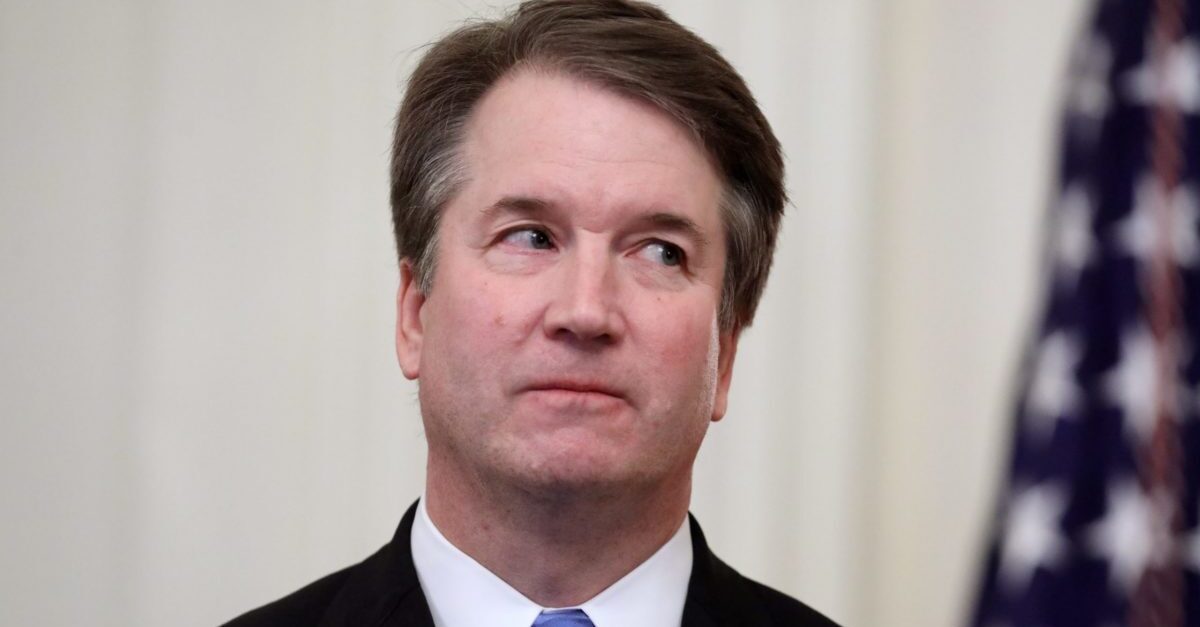
The Supreme Court heard oral arguments Tuesday in a lawsuit brought by the City of Baltimore against companies that produce fossil fuels, seeking to hold them responsible for their role in climate change.
Though climate change is a hot-button political issue, the legal question before the high court is at this point, solely a jurisdictional one: whether the defendant companies can properly remove the case from state to federal court. The Court’s ruling has potential to affect at least 19 other cases brought around the nation with similar claims.
The case, though highly technical in its legal inquiry, raises several far more provocative matters: possible recusal of Justice Amy Coney Barrett; the future of climate change litigation; and the legacy of the late Justice Ruth Bader Ginsburg.
The Underlying Litigation
The City of Baltimore sued a group of oil and gas companies in 2018; the defendants included BP, Chevron, Exxon Mobil, Shell and Citgo. Baltimore argued that the companies continued to produce and sell fossil-fuel products knowing that such action would lead to harmful global warming, and brought various state-law claims for fraud and deception.
Although the case was initially filed in state court, Chevron removed it to federal court. Baltimore then argued the removal had been improper, and requested that it be sent back to state court. The district court agreed, and sent the case back to state court. That decision was appealed by the defendant companies to the U.S. Court of Appeals for the Fourth Circuit. The Fourth Circuit agreed with Baltimore that the case was properly heard in state court.
The issue pending before SCOTUS is not necessarily whether the removal to federal court had been proper (though could opt to rule on that issue), but whether the district court’s decision on removal had been appealable. Decisions about removal are not always legally appealable by the “losing” party, but the defendant companies in this case argue that it falls within one of the allowable categories. Baltimore argues that if SCOTUS allows the oil and gas companies to appeal this particular decision on removal, the decision will encourage jurisdictional gamesmanship in the many climate change lawsuits to come.
In BP P.L.C. v. Mayor and City Council of Baltimore, the Court will analyze the question under 28 U.S.C. 1447(d), which permits appellate courts to review decisions on federal removal when the reason for the removal was based on either the federal-officer removal statute, 28 U.S.C. 1442, or the civil-rights removal statute, 28 U.S.C. 1443.
Controversy Before SCOTUS Oral Arguments Occurred
At her confirmation hearing, Justice Barrett was asked whether she would recuse herself from cases involving fossil fuel companies. She answered:
My father worked at Shell Oil Company for many years, and while on the Seventh Circuit, in an abundance of caution, I have recused myself from cases involving those Shell entities with which he was involved.
Many have called for Barrett to recuse herself from this case on the grounds that her father, Michael E. Coney, was an attorney for Shell and held longstanding positions with the American Petroleum Institute (API). Nearly all of the defendant companies in the lawsuit are API members. Barrett, however, did not recuse. Justice Samuel Alito, who owns stock in several fossil fuel companies, recused himself, leaving open the possibility of a 4-4 split, which would leave in place the lower court’s ruling in favor of the City of Baltimore.
SCOTUS Oral Arguments
Though the case seeks to hold the oil and gas industry accountable for some of the effects of climate change, the justices and attorneys stuck to the narrow question of appealability of a removal decision.
Attorney Kannon Shanmugam, representing the defendant/petitioner oil companies, called the idea that climate change cases involving global issues should be litigated in state courts under varying laws “profoundly counterintuitive.”
Justice Brett Kavanaugh called the case “a close call” and cautioned counsel for Baltimore against any argument that would run afoul of Justice Ginsburg’s decision in Yamaha Motor Corporation.
“It’s never good to be on the wrong side of a Justice Ginsburg opinion, and particularly on a jurisdictional issue,” remarked Kavanaugh.
The 1996 case of Yamaha Motor Corporation, U.S.A. v. Calhoun had been a unanimous SCOTUS decision over whether a wrongful death action was properly heard in state or federal court. Natalie Calhoun, 12, died in a boating accident while riding a Yamaha jet ski in territorial waters off Puerto Rico; her parents sued, seeking to apply Pennsylvania state law. Yamaha objected. The Supreme Court sided with the Calhoun family, holding that state-law remedies were available. Justice Ginsburg wrote the unanimous decision in the case.
During arguments Tuesday, Justice Stephen Breyer bluntly reiterated the issue in the case, saying, “it’s important to have an appeal, and it’s unfair not to have an appeal. But if you give them appeals too often in the middle of a case, it’ll muck up the system.”
The Supreme Court will now consider whether allowing an appeal on the issue of removal would “muck up the system” enough to warrant a ruling against the process. Still, however narrow the Court’s ruling on appealability of removal, it has potential to affect similar environmental cases for years to come.
Environmental law insiders are looking to the Baltimore case as a potential test case for future climate-change litigation. If SCOTUS sides with Baltimore, it will mean that other similar lawsuits may proceed in state courts nationwide.
[image via Chip Somodevilla/Getty Images]